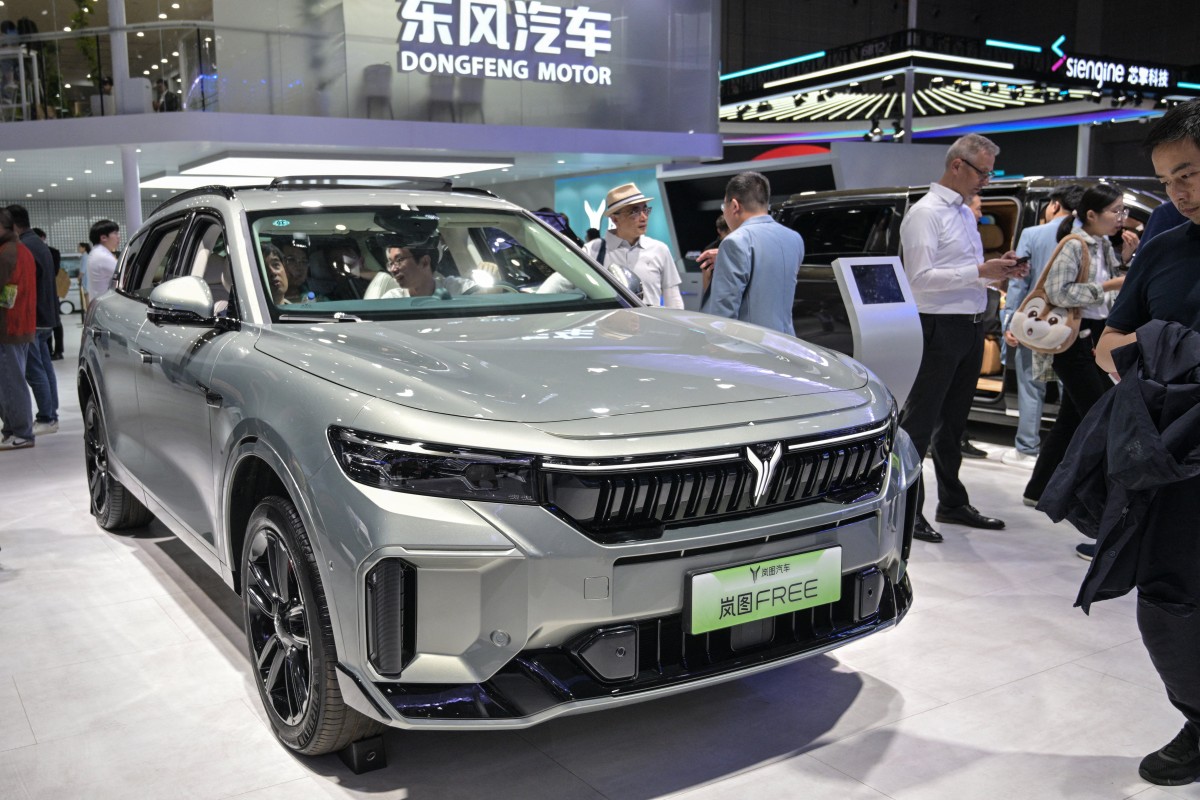Shanghai, China — Chinese companies such as BYD made their name producing some of the world’s best electric vehicles ahead of the curve but they have turned to an old-school solution to extend the range of some of their newest models — the petrol generator.
At the huge industry show Auto Shanghai this week, BYD’s luxury Yangwang U8 SUV and other electric models such as Chery’s Exeed ET promised an unusually long range of more than 1,000 kilometers (620 miles).
The secret is a small petrol generator, known as a range extender, which is connected to the cars’ batteries and feeds them only when needed.
Because the range extender is not connected to the wheels, the vehicles, known as EREVs, always run in 100 percent electric mode even though they consume petrol and emit toxic gases.
This technology grew faster in China last year than any other type of powertrain, the system that propels a vehicle forward.
More than one million EREVs were sold, representing a total market share of six percent, according to the McKinsey consultancy.
Range extenders are rare elsewhere at the moment but that could soon change.
In the United States, Stellantis plans to offer an EREV version of its star pick-up, the Ram 1500, while its Chinese partner Leapmotor has already launched its C10 SUV in Europe.
Volkswagen has plans to launch an EREV Scout pickup in the United States after unveiling an EREV SUV at Auto Shanghai as part of its renewed push into China.
Horse Powertrain, a joint venture between France’s Renault and China’s Geely, also presented an engine that can be installed in an electric model.
Global expansion? –
EREVs fall into the category of rechargeable hybrids, which are seen by manufacturers as a good bet in Europe and North America where electrification has been slower than expected.
They pollute less than petrol cars if they are properly charged, while also assuaging driver concerns about range.
According to a survey published by McKinsey on Tuesday, once the concept has been explained, almost a quarter of customers questioned in Europe and the United States said they would consider choosing an EREV as their next car.
“This is a real use identified for the United States, for very American needs,” said Stellantis’ Sebastien Jacquet.
They are suitable for long journeys but also work well for “pick-ups for towing boats, for example”.
While an electric vehicle has towing capacity, its battery only lasts 100 kilometers, Jacquet said.
The road ahead is less clear in Europe.
Unlike in the United States, there is a planned transition to a 100 percent electric car market, warned Alexandre Marian of AlixPartners, “the cut-off point of 2035”.
Some, notably Germany, want exceptions for non-electric but less polluting motors.
“Who would now invest into new capacities if you know that there’s a natural end to it in 2035?” asked Holger Klein, head of German equipment manufacturer ZF.
“That’s why we need to solve this very soon,” he said.
Range extenders are a “very good opportunity to reduce the entry cost for people to come to electric mobility”, said Volkswagen boss Oliver Blume on Tuesday.
However, “in the long term I see the electric mobility as superior”, he said.
In a few years, Blume said, battery development will have progressed to the point where those longer ranges will be achievable by pure electric vehicles.








